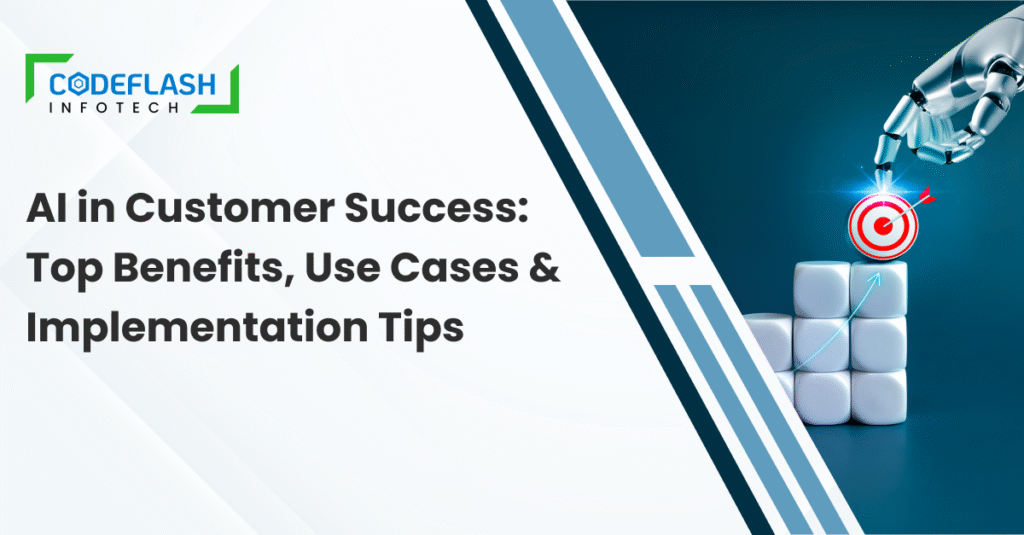
AI in Knowledge Management: Benefits, Use Cases & Future Trends
15 JULY
In today’s data-driven world, managing knowledge efficiently is no longer a luxury but a necessity. Organisations, huge ones, tend to produce massive amounts of information every day. It is in this aspect of finding information that can be acted upon amidst this data jungle that AI knowledge management converts it into a transformative process. AI is significantly impacting knowledge management, with the global market expected to reach $62.4 billion by 2033. Artificial intelligence and knowledge management integration have restructured the way businesses store, access, analyze, and use information.
The Role of AI in Knowledge Management
Knowledge management (KM) is a method of managing information assets effectively, employed to capture and organize information, share and utilize knowledge, and improve performance. The KM systems of the past were based on structured data and curated by human beings. Nevertheless, these strategies were often inadequate when it came to scaling with unstructured data, such as email, social media content, and meeting transcripts.
Here’s where AI and knowledge management come together. Natural language processing (NLP), machine learning (ML), and semantic search are AI tools that have recently been integrated into knowledge management (KM) systems, enabling software robotics to automate data classification and enhance the accuracy of search, while also anticipating user needs.
Curious about our past work in AI knowledge management? View our complete portfolio
Use Cases of AI in Knowledge Management
- Intelligent Search and Retrieval
The capability of keyword search engines is limited in understanding context and intent, and is therefore inadequate when compared to AI-powered search systems. Semantic analysis enables users to access relevant documents, even when they do not use the exact keywords. - Content Recommendation Systems
Similar to how streaming platforms suggest movies, AI will be able to recommend knowledge resources to employees based on their job, previous queries, or the current tasks they are performing. This increases productivity because it exposes users to useful information more quickly. - Automated Content Tagging and Classification
Manual tagging is considered one of the most significant challenges in enterprise knowledge systems. AI metadata can automatically check and label files, making the content easier to find. - Knowledge Extraction from Unstructured Data
By utilizing NLP and entity recognition, AI can sift through emails, meeting notes, or chat messages and meaningfully structure useful information, thereby enhancing the enterprise knowledge base. - Chatbots for Internal Knowledge Access
AI chatbots can be utilized as 24/7 knowledge assistants in organizations. Employees will be able to pose questions in their natural language and receive responses quickly, using the standard data repositories of the particular organization.
Want to explore how AI can revolutionize your knowledge systems? Email us

Applications Across Industries
The power of knowledge management and artificial intelligence spans multiple industries:
- Healthcare: AI has the potential to assist clinicians in speedily retrieving research, patient histories, and guidelines on diagnosis.
- Finance: AI allows financial companies to research the situation on the market and make justified investment decisions.
- Legal: Legal teams automate document discovery and retrieval of case law.
- Education: Institutions offer personalized learning experiences by recommending study materials using AI algorithms.
- IT and Tech: Artificial intelligence-powered systems help companies improve the control of code repos and technical documentation.

Benefits of AI Knowledge Management
- Enhanced Decision-Making
By analyzing vast amounts of data, AI identifies patterns and trends, making informed and quicker decision-making processes available at every level within an organization. - Increased Efficiency and Productivity
By automating repetitive knowledge tasks, such as tagging, data entry, and retrieval, employees can focus on high-value activities. - Improved Customer and Employee Experience
It could be a support agent who needs to view information about a client or a new employee who needs to find information on the onboarding process; AI will organize the experience. - Better Utilization of Organizational Knowledge
AI makes certain that institutional knowledge is not lost in silos. Instead, it is ever-changing, enriched, and available to those who require it. - Cost Savings
In the long run, AI will help reduce operational expenses by decreasing the need for manual labour in matters concerning knowledge
Development of AI-Driven KM Systems
There are several steps to building effective utilization of artificial intelligence in knowledge systems:
- Data Collection and Cleansing: Collecting structured and unstructured data throughout the enterprise and making sure it is clean and usable.
- Choosing the Right Tools: Implementing NLP engines, ML models, and search algorithms that are fit to the organizational requirements.
- Integration with Existing Systems: Assuring good integration with CRM, ERP, and cooperation tools to centralise the enterprise knowledge.
- User Training and Feedback: With the help of AI tools, employees are trained on how to use them and receive feedback to improve the accuracy of the systems.
- Governance and Security: Data governance policies and the enforcement of these policies, such as GDPR, in handling sensitive data.
Conclusion
With the continued development of AI, the use of AI in KM will also advance. More friendly ways to engage people, such as voice search, stronger personalization, and pushing different knowledge to users, should be expected. In the final analysis, AI, combined with knowledge management, is a crucial component for organizations that do not want to fall behind in the rapidly evolving world.
Ready to implement AI in your enterprise knowledge strategy? Contact Us!
Frequently Asked Questions
AI can assist with better knowledge management (KM) through data tagging automation, improved search performance, and understandable recommendations, as well as insights derived from unstructured information.
Among the benefits are accelerated decision-making, increased productivity, effective cost management, enhanced employee experience, and streamlined organizational knowledge.
Yes, with the help of NLP and machine learning, AI can read emails, documents, chats, and other forms of communication, process, and extract useful information.
Some critical industries that have seen tremendous gains with the application of AI include healthcare, finance, education, and the IT industry, based on the system’s ability to manage and access large amounts of data.
AI does not substitute human beings but complements them. It automates repetitive tasks and provides rational assistance, allowing people to focus on strategic tasks.





